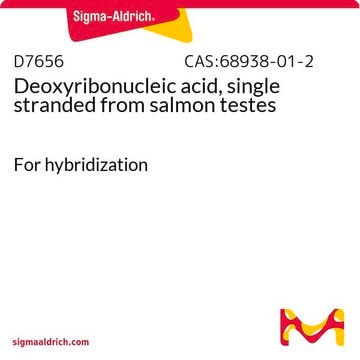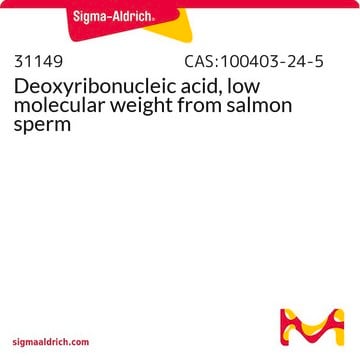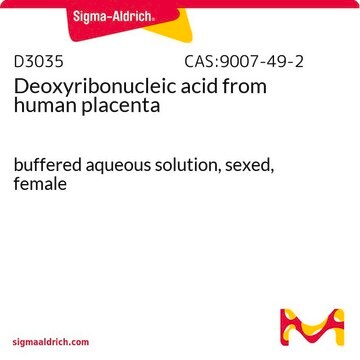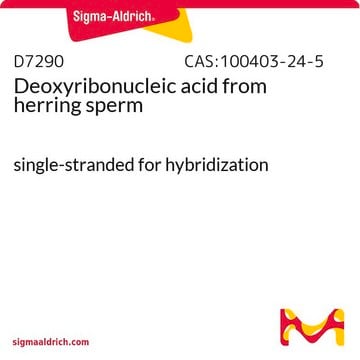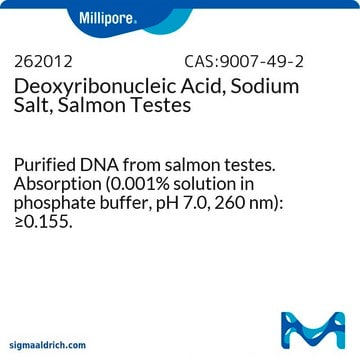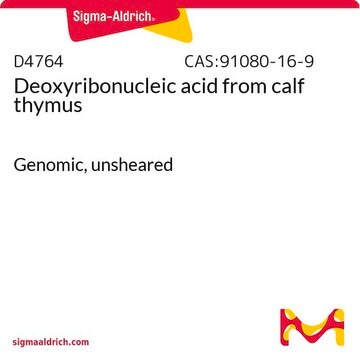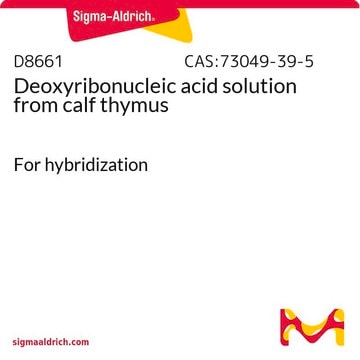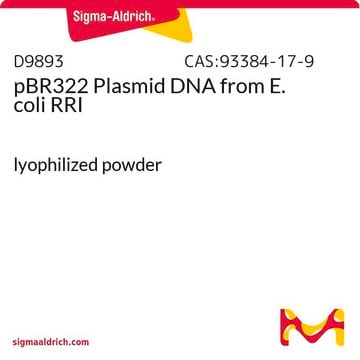D4889
Deoxyribonucleic acid sodium salt from Escherichia coli strain B
Genomic, unsheared
Synonyme(s) :
DNA
About This Item
Produits recommandés
Qualité
for molecular biology
Niveau de qualité
Forme
lyophilized powder
Poids mol.
>45 kb
Température de stockage
2-8°C
Vous recherchez des produits similaires ? Visite Guide de comparaison des produits
Catégories apparentées
Description générale
Spécificité
Application
Deoxyribonucleic acid sodium salt from Escherichia coli strain B has been used for:
- PCR reactions of genomic DNA of Gardnerella vaginalis
- nick translation and radiolabeling of dNTP
- generating standard curve for 16S rDNA quantification
- transfecting neutrophils
- testing the extraction methods
Définition de l'unité
Notes préparatoires
Remarque sur l'analyse
Autres remarques
Produit(s) apparenté(s)
Code de la classe de stockage
11 - Combustible Solids
Classe de danger pour l'eau (WGK)
WGK 3
Point d'éclair (°F)
Not applicable
Point d'éclair (°C)
Not applicable
Équipement de protection individuelle
Eyeshields, Gloves, type N95 (US)
Certificats d'analyse (COA)
Recherchez un Certificats d'analyse (COA) en saisissant le numéro de lot du produit. Les numéros de lot figurent sur l'étiquette du produit après les mots "Lot" ou "Batch".
Déjà en possession de ce produit ?
Retrouvez la documentation relative aux produits que vous avez récemment achetés dans la Bibliothèque de documents.
Les clients ont également consulté
Notre équipe de scientifiques dispose d'une expérience dans tous les secteurs de la recherche, notamment en sciences de la vie, science des matériaux, synthèse chimique, chromatographie, analyse et dans de nombreux autres domaines..
Contacter notre Service technique
